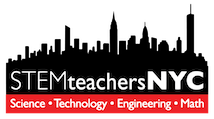Seeing Science Everywhere
This workshop focuses on ways to support children in the elementary grades as they continue to gather evidence, ask and answer questions, make predictions, find patterns, and communicate their ideas. Through a series of hands-on activities and discussions, participants will explore how to use inquiry-driven, collaborative, and phenomena-based investigations with students in grades three through five. In “student mode,” we will uncover methods for encouraging upper elementary students to build on the foundation set in the lower grades while growing as active scientists. In “teacher mode,” participants will reflect on their own experiences with science in the elementary grades and consider how to best prepare our next generation of scientists and engineers as they transition from elementary to middle school. By the end of the workshop, participants will deepen their understanding of instructional strategies that support learning scientific skills and developing scientific attitudes that integrate mathematics, science, social studies, and literacy.
Introduction to Active Learning in STEM
During this introduction to the principles of active learning in STEM, we’ll introduce several strategies such as facilitating student discourse, modeling, multiple representations in problem solving, and curriculum design. We will explore these ideas by investigating content from several cross-cutting-concepts within the physical and life science contexts at middle and high school levels. The workshop will engage you in selected “student-mode” activities embodying active STEM learning. This will include one or two trips through the sensemaking and modeling process, where you’ll have the chance to directly observe a phenomena, collect and examine data, develop multiple representations, and share your findings with the larger group. You will also participate in “teacher-mode” discussions of the pedagogy involved and of how you might try out elements of this approach in your classroom. Examples will be chosen from physics, chemistry, and/or middle school science, depending upon the experience, background and interest of participants.
Phenomena First: Engaging Students in Next Generation Science Standards
Experience learning from a phenomenal perspective! In this workshop, participants will learn how to use phenomena to engage students in Next Generation Science Standards, which integrate science practices, crosscutting concepts, and disciplinary core ideas. Phenomena are observable events that occur in the world and something educators can use to inspire discussion and understanding of key science concepts and ideas. Throughout the workshop, participants will have a chance to experience phenomena-based learning from the perspective of a student, and then discuss pedagogical strategies that support NGSS-anchored content in teacher-mode. By the end of the session, participants will leave with resources and strategies for how to organize inexpensive labs and projects that will inspire students to ask meaningful questions through observation and scientific understanding that can be used right away, as well as for years to come.
